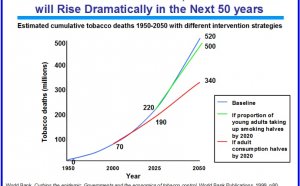
Smoking cessation programs Massachusetts
Tobacco and nicotine addiction is a chronic disease and is the leading cause of preventable death and illness in Massachusetts and in the nation.
Seventy-seven percent of adult smokers in Massachusetts report they want to quit and 60% try each year. In fact, when a smoking cessation benefit was added to MassHealth, over 40% of MassHealth smokers took advantage of it. However, many do not use proven methods that increase the odds of success. It’s important to use medications and counseling together when trying to quit.
New research shows a direct link between the use of smoking cessation benefits and positive health outcomes — in just one year. MassHealth members who used the smoking cessation benefit had:
- A 46% decrease in hospitalizations for heart attacks, and
- A 49% drop in hospitalizations for other acute coronary heart disease diagnoses.
The Massachusetts Tobacco Cessation & Prevention Program (MTCP) promotes proven steps and support to help people quit smoking for good.
To start, plan ahead.
- Pick a date to stop smoking as your quit date. Plan two to four weeks away.
- Use the time before your quit date to start making changes to your routine to help you handle withdrawal symptoms and triggers. Triggers are those certain times, places, people, or feelings that make you want to smoke.
Talk to your doctor and your health plan about quit-smoking medicines.
- Using quit-smoking medicines and counseling support together can triple your chances of quitting for good.
- Many medicines help with withdrawal symptoms and are not addictive. Some, like the nicotine patch or gum, are available over the counter without a prescription.
- Call your health insurance plan to ask if it covers the cost of medicine and counseling to help you stop smoking.
- For example, MassHealth covers FDA-approved stop-smoking medicines and counseling with a low co-pay.
- The Helpline provides free and confidential counseling over the phone in English and Spanish, and translation for other languages.
- You can call Monday through Friday for confidential one-on-one support, or to find out about in-person counseling sessions or stop-smoking groups in your area.
For Healthcare Providers
- Encouraging your patients to quit smoking is one of the most important things you can do as a healthcare professional.
Refer patients to QuitWorks, a free, evidence-based referral service that connects patients with phone-based counseling through the Massachusetts Smokers’ Helpline to help them stop smoking.
Share this Post
Related posts
Tobacco history Timeline
A tobacco history timeline published today by the Robert Wood Johnson Foundation showcases a decrease in smoking among adults…
Read MoreStatewide smoking ban
Kentucky leads the nation in smoking, and how the state goes about addressing that distinction will rest in part with the…
Read More










